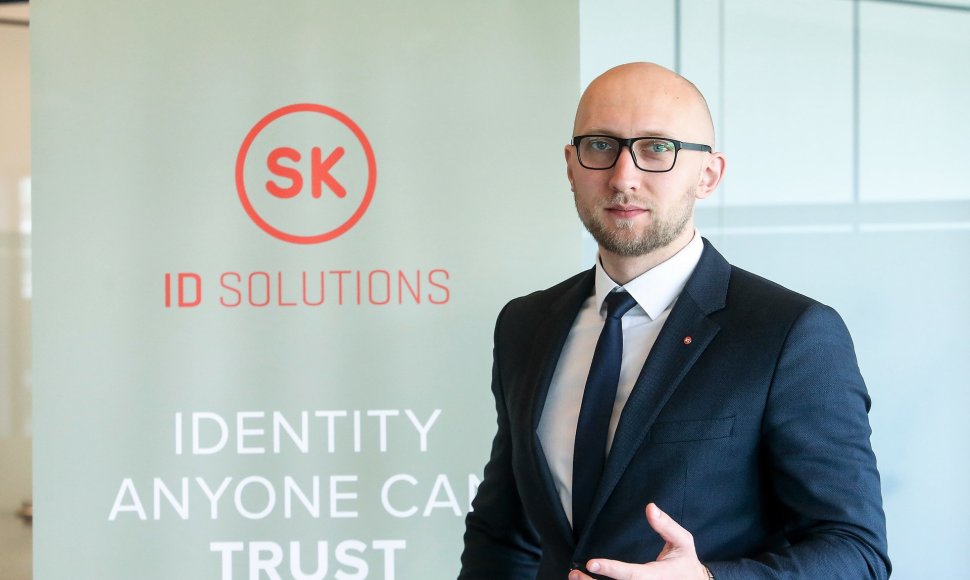According to V. Kamarevcevas, lately, there has been an increase in spear-phishing attacks, exploiting stolen and publicly available information.
“There are various attack scenarios. Traditional attacks in which a leader receives an email from a “business partner” or their “gym.” Or when the leader publicly announces they are on holiday, an “IT engineer” calls or emails the office, informing the administrator that the leader (using their specific name) asked prior to going on holiday to make certain adjustments. Thus, the administrator should permit access to their computer. Attacks can also demand more effort from the fraudsters. For example, you could receive an email one day with an attachment from your son’s “school” or from your “son” with the message “Print this, dad (mom).” There are also more sophisticated attacks that can trick even the most cautious,” the security specialist says.
Furthermore, V. Kamarevcevas adds that as of late, the attacks are becoming personalised and automated. So, it is crucial to understand what information could be used against us in our current reality.
One of the ways to protect yourself from it is to actively request that publicly available information about you would be removed from websites and/or search engines. To know what information about you is publicly available, you can google yourself. Then you can take action to erase the information about yourself.
How do you erase information about yourself from the internet?
According to the specialist, you need to be aware that you cannot entirely remove all your data from the internet. However, there are ways to reduce your online footprint and thereby reduce the likelihood that your data will be exploited for malicious purposes.
First of all, erase or shut down all your unused shopping, social media and other internet service profiles. Think about which social media platforms you have profiles that you don’t use. Other than the big ones such as Facebook, Twitter, LinkedIn or Instagram, you might still have profiles on sites such as Google+, SoundCloud, the Lithuanian social media platforms Klase.lt, Draugas.lt, One.lt, the dating portals DarniPora.lt, Tinder and so on. If you only tried shopping on Amazon, eBay, AliExpress and other e-tailers as a one-off, you could also erase those profiles. Some advice for those seeking jobs – you shouldn’t erase your LinkedIn profile while seeking a job.
In order to erase your information from service portals, go to your profile settings and simply look for the option to turn off, remove or close down the profile. Depending on the platform, you can find this in the section “Security”, “Privacy” and so on.
If you can’t find how to erase your profile, enter “How to turn off the profile” in the search bar – you should find instructions on how to do so.
Second, don’t forget old emails. Depending on your email provider, you will have to access your profile and find the option to erase or turn off the profile. Some profiles will remain open for a time, and so, you will be able to reactivate them if you change your mind.
What to do if you are unable to?
According to the country manager for SK ID Solutions in Lithuania, if for whatever reason you are unable to erase your profile, change the information on it to something false. If you struggle to come up with it, you can even make use of special generators, which will create a first name and surname and a date of birth and place of residence. For Lithuanian websites, you can also ask to remove information by directly writing to or calling the companies.
Even if the information is removed from the primary source, it also needs to be removed from search engines. Simply search for “Personal Information Removal Request Form” on Google and fill in the form.
V. Kamarevcevas shared his own experience of how to erase data about oneself.
“I was an amateur basketball player. Half a year ago, I decided to experiment and look at how I will fare at removing my information from a basketball fan page. I filled in the personal information removal request form on google. The removal of information from the search engine took almost three months from the request being submitted. I also had to get in touch with the website’s administrators and ask for the source data to be removed. Still, I at least know that scouts won’t find the data all that easily if I ever decided to accomplish my teenage dream of playing in the NBA,” the specialist quipped.
So, if you put in a little effort, publicly available information about you can be erased. However, don’t lose patience and don’t expect your online footprint to be gone in a day. Furthermore, data doesn’t have to be erased by yourself; service providers can help do so as well.












